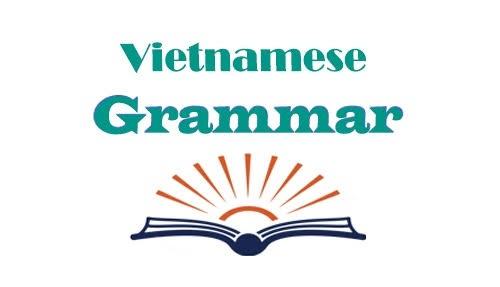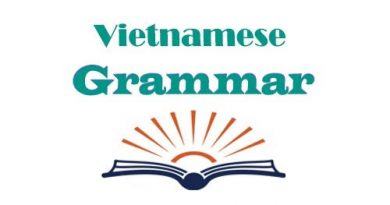Reported speech in Vietnamese
In this post, Tiengviet24h will introduce to you: Reported speech in Vietnamese. Let’s start!

How to use
– Reported speech is used when telling someone what another person said.
– Example:
An: “Mình ghét trời mưa.” (An: “I hate rain.”)
–> An nói rằng cô ấy ghét trời mưa. (An said that she hates rain.)
Nam: “Tớ sẽ đến đúng giờ mà.” (Nam: “I will come on time.”)
–> Nam bảo cậu ấy sẽ đến đúng giờ. (Nam said he would come on time.)
Structure
– In Vietnamese, it’s quite easy to change direct speech into reported speech. You just need to change pronouns and possessive adjectives of direct speech, and place narrative verbs behind the main subject of reported speech.
– Some common narrative verbs: nói (say); bảo (say / tell); hỏi (ask); hứa (promise); thề (swear); đề nghị (suggest); khuyên (advise); nhắc (remind); trả lời (answer); yêu cầu (ask / request); cấm (prohibit); mời (invite); xin / cầu xin (beg); ra lệnh (command / order);…
– How to change pronouns and possessive adjectives:
| Direct speech | Reported speech |
| Tôi / Tớ / Mình / … (first-person singular) | Cô ấy / Chị ấy / Cậu ấy / Anh ấy / … (third-person singular) |
| Bọn tôi / Bọn tớ / Bọn mình / … (first-person plural) | Họ / Các cô ấy / Các bạn ấy / … (third-person plural) |
| Cậu / Bạn / Anh / Chị / … (second-person singular) | – The narrator is mentioned in direct speech: Tôi / Tớ / Mình / … (first-person singular) – The narrator is not mentioned in direct speech: Cô ấy / Chị ấy / Cậu ấy / Anh ấy / … (third-person singular) or Name (if known) |
| Các cậu / Các bạn / Các anh / … (second-person plural) | – The narrator is included in those mentioned in direct speech: Bọn tôi / Bọn tớ / Bọn mình / … (first-person plural) – The narrator is not included in those mentioned in direct speech: Họ / Các cô ấy / Các bạn ấy / … (third-person plural) |
| Của tôi / Của tớ / Của mình / … | Của cô ấy / Của cậu ấy / Của anh ấy / Của chị ấy / … |
| Của bọn mình / Của bọn tớ / … | Của họ / Của các bạn ấy / … |
| Của bạn / Của cậu / Của anh / Của chị / … | – The narrator is mentioned in direct speech: Của tôi / Của tớ / Của mình / … – The narrator is not mentioned in direct speech: Của cô ấy / Của cậu ấy / Của anh ấy / Của chị ấy / … or [Của + Name] (if known) |
| Của các cậu / Của các bạn / … | – The narrator is included in those mentioned in direct speech: Của bọn mình / Của bọn tớ / … – The narrator is not included in those mentioned in direct speech: Của họ / Của các bạn ấy / … |
Normal sentences
– Structure: Main subject + nói / bảo + (với) + (objective) + (rằng / là) + clause
– Example:
Lan: “Ngày mai mình sẽ đến thư viện học.” (Lan: “I will go to the library to study tomorrow.”)
–> Lan nói rằng ngày mai cô ấy sẽ đến thư viện học. (Lan said that she would go to the library to study the next day.)
Phong: “Bọn tớ đã gặp cô ấy ở siêu thị gần trường.” (Phong: “We met her at the supermarket near the school.”)
–> Phong bảo họ đã gặp cô ấy ở siêu thị gần trường. (Phong said they had met her at the supermarket near the school.)
Nam nói với An: “Tớ thích cậu.” (Nam told An: “I like you.”)
–> Nam nói với An rằng cậu ấy thích cô ấy / Nam nói với An rằng cậu ấy thích An. (Nam told An that he likes her / Nam told An that he likes An.)
Chi nói với các bạn của mình: “Vì hôm nay được nghỉ làm nên tớ sẽ đi xem phim với các cậu.” (Chi told her friends: “Because I can take a day off from work today, I will go to the movies with you.”)
–> Chi nói với các bạn của mình rằng hôm nay cô ấy được nghỉ làm nên cô ấy sẽ đi xem phim với họ / Chi nói rằng hôm nay cô ấy được nghỉ làm nên cô ấy sẽ đi xem phim với các bạn của mình. (Chi told her friends that because she could take a day off from work that day, she would go to the movies with them / Chi said that because she could take a day off from work that day, she would go to the movies with her friends.)
Questions
Yes / No questions
– Structure: Main subject + hỏi + (objective) + rằng / là + (liệu) + clause
– Example:
Lan hỏi Nam: “Cậu là học sinh mới hả?” (Lan asked Nam: “Are you a new student?”)
–> Lan hỏi Nam rằng liệu cậu ấy có phải là học sinh mới không. (Lan asked Nam if he was a new student.)
Mẹ hỏi tôi: “Con đã ăn gì chưa?” (Mom asked me: “Have you eaten yet?”)
–> Mẹ hỏi tôi là tôi đã ăn gì chưa. (Mom asked me if I had eaten yet.)
Cô ấy hỏi: “Có vé xem phim này không ạ?” (She asked: “Do you have tickets for this movie?”)
–> Cô ấy hỏi là liệu có vé xem phim này hay không. (She asked if they had tickets for that movie.)
Question word questions
– Structure: Main subject + hỏi + (objective) + (rằng / là) + ai + action / state
Hoặc: Main subject + hỏi + (objective) + (rằng / là) + tại sao / vì sao / sao + subordinate subject + action / state
Hoặc: Main subject + hỏi + (objective) + (rằng / là) + subordinate subject + action / state + question word
– Example:
Cậu ấy hỏi tôi: “Bạn là ai?” (He asked me: “Who are you?”)
–> Cậu ấy hỏi tôi là ai. (He asked me who I was.)
An hỏi Minh: “Hôm qua cậu đi đâu vậy?” (An asked Minh: “Where did you go yesterday?”)
–> An hỏi Minh rằng hôm qua Minh đã đi đâu. (An asked Minh where Minh had gone the day before.)
Thầy giáo hỏi tôi: “Tại sao hôm qua em không đi học?” (Teacher asked me: “Why did you not go to school yesterday?”)
–> Thầy giáo hỏi tôi tại sao hôm qua tôi không đi học. (Teacher asked me why I hadn’t gone to school the day before.)
Imperative
– Structure: Main subject + bảo / yêu cầu + objective + (không được) + action / state
– Example:
Cô giáo: “Các em mở sách giáo khoa ra đi.” (Teacher: “Please open your textbook.”)
–> Cô giáo bảo chúng tôi mở sách giáo khoa ra. (Teacher told us to open our textbook.)
Minh nói với An: “Đừng có nói chuyện này với ai đó”. (Minh told An: “Don’t tell this with anyone.”)
–> Minh yêu cầu An không được nói chuyện này với ai. (Minh asked An not to tell that with anyone.)
Mẹ nói với tôi: “Con mau dọn phòng đi”. (Mom told me: “Clean your room.”)
–> Mẹ bảo tôi mau dọn phòng. (Mom told me to clean my room.)
Above is: Reported speech in Vietnamese. See other similar posts in category: Vietnamese grammar
We on social : Facebook
